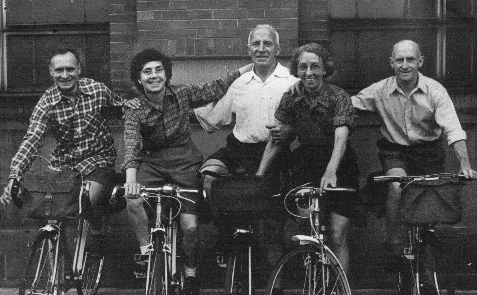BETWEEN THE WARS
By Peter Roscoe
By 1918 things were picking up. We bought another whistle and a Primus stove.
In 1919 we bought another stove and a kettle.
We also paid ten shillings for a kettle to be ‘altered’ and a box to put these assets in. This year we really pushed the boat out by buying a football.
In 1921 our expenditure included one pound for an international Clarion football match. By this time our membership had increased to 45 and we had 87 attendees at a social and potato pie supper.
Our archives show that Sam Derby was secretary in 1923. Sam Derby joined the forces and saw action in the Dardanelles, an experience that influenced his political views for the rest of his life. We do not know when he first became secretary but he held the position interspersed with periods as chairman for many years up to 1953. In 1955 we honoured him by electing him our first life president. Sam was a dedicated socialist but did not allow his belief to override his fellowship with his fellow cyclist – people of a different political persuasion were made equally welcome in our club.
Against the background of the international power struggle of the first world war and the hardships of the working classes it is worth looking at the aspirations of those who became socialists:
From the National Clarion handbook 1926
- The organisation of society upon the basis of a Co-operative Commonwealth.
- To socialise the means and instruments for the production and distribution of wealth, everyone to give useful service, and in return to receive an equitable share of the wealth produced,
- To prevent domination of class over mass.
- Not to rob anyone, but to check robbery.
- Not to deprive anybody, but to provide decent food, shelter, clothing and education for all.
- Not to ‘share out’ wealth but to prevent usurpation of the Commonwealth.
- Not to create strife, but to set up Co-operation.
- Not to feed the shirker at the cost of the worker but to order that ‘he who will not work shall not eat’ whether he be tramp or duke.
Gaps will be perceived in this agenda but the reference to the Co-operative Commonwealth will probably cover these. It is noted that the monarchy would remain! Ideals are commendable and there must have been satisfaction in having an aim to work for.
However, for many years now we have been one hundred per cent devoted to cycling – many of us regard the advancement of all matters cycling is a commendable aim in itself and some of us work towards this end. Even so the few of us whose membership goes back to the life and times of Sam Derby and his contemporaries are honoured to have known people who believed it was possible to have a more just world.
Our membership had declined to 33 in 1926 and we paid one pound nineteen shillings to the miners relief fund. We affiliated to the CTC in 1928. At that time we were still very much a club with an accent on socialism. It is then very surprising that we had so much opposition from other sections when in 1999 we proposed that the National Club should affiliate to the CTC – this organisation being portrayed as having its roots in the world of toffs and not the working class like the Clarion. Up to the early 1960s when we enjoyed club runs of between 20 and 40 people things would from time to time get out of hand –
A minute dated April 1928 resolves that ‘We pay more attention to orderly riding i.e. ride in twos’. To this effect it was further resolved that the whistle be reintroduced to be blown at the discretion of the captain and sub captain. Always democratic we also resolved in 1928 that a vote should be taken whether or not swimming should be indulged in on any particular club run.
It appears that our track team of Ellis Barlow, I Taylor and E Clarke won the team pursuit championship at the 1929 National Clarion Sports – a minute records that ‘if possible we should exhibit the Prague Statuette in the Co-op Furnishing Department for one week’.
In 1930 our membership had risen to 56, we played two football matches and we rescinded a ruling that there should be no gambling on club runs. The following year we joined a football league and in 1932 we had to buy a new football. We waited until 1933 to buy the football shirts, which cost us one pound twelve shillings.
Cycling, of course, was our main activity and we lost ten shillings and seven pence on a novices 25. Our non-cycling activities were broadened in 1935 when we joined the billiards league. We bought an attaché case in 1938 for one shilling – this is still a club asset!
In this year our socialist ideals were still relevant – we made a grant of two shillings and six pence to a Spanish food ship. This, of course, would be related to the Spanish Civil War.
The addition below is kindly supplied by Bill Mitton and his wife Pat (nee Twigg), who have also been keen cyclists all their married life
Tom and Nora Twigg. Bury Clarion members in 1930s
Tom and Nora lived in Chesham, Bury. They were employed at Bury Slipper Works, and were married in 1939.
They did cycle tours in many parts of Britain and recorded their adventures in photographs. One album shows tours between 1934 and 1938 in groups of cyclists numbering between 6 and 10. Nora is the only girl in the group photographs. She would be between 16 and 20 at the time, and Tom was between 19 and 24.
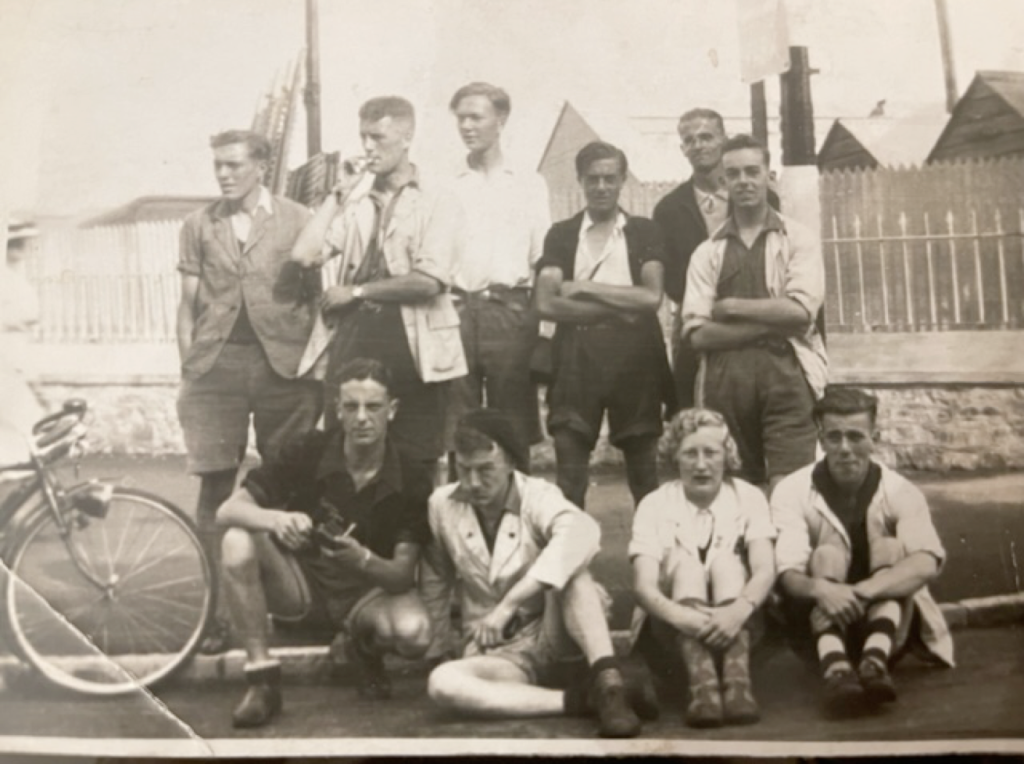
Places visited include the show in Rhyl in 1934, and Aberystwyth and Morecambe in 1935.
In 1936, photos are shown of Stratford on Avon, Clifton Suspension Bridge Bristol, Stoke on Trent, and Weston Super Mare. In 1937 they visited Rhyl, Conway, and Betws-y-coed, and in 1938 Wells, Bath, Oxford, Hereford and Shrewsbury.
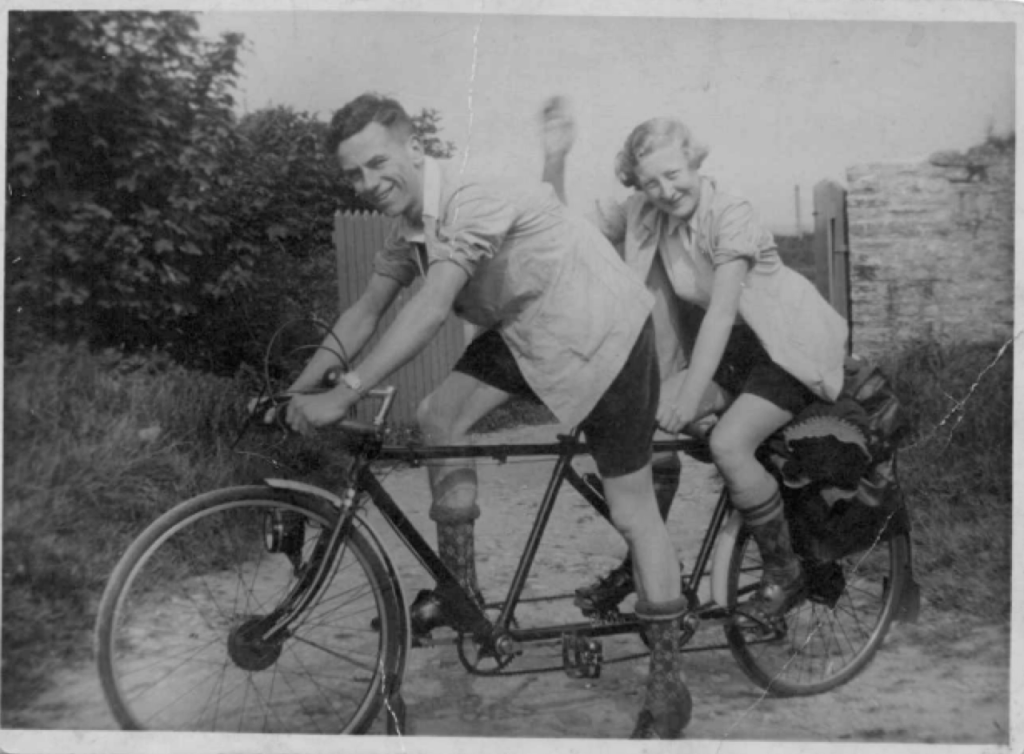
Regarding accommodation, Some photographs show tents, and notes refer to a YHA in Bishopstone, near Oxford, in August 1938.
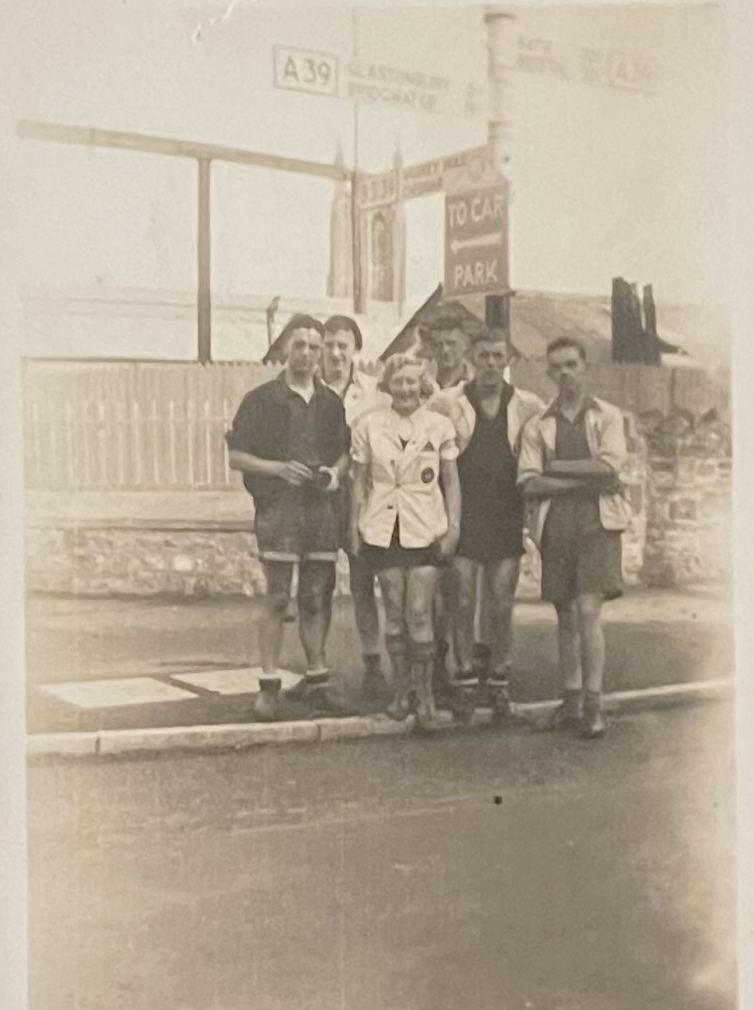
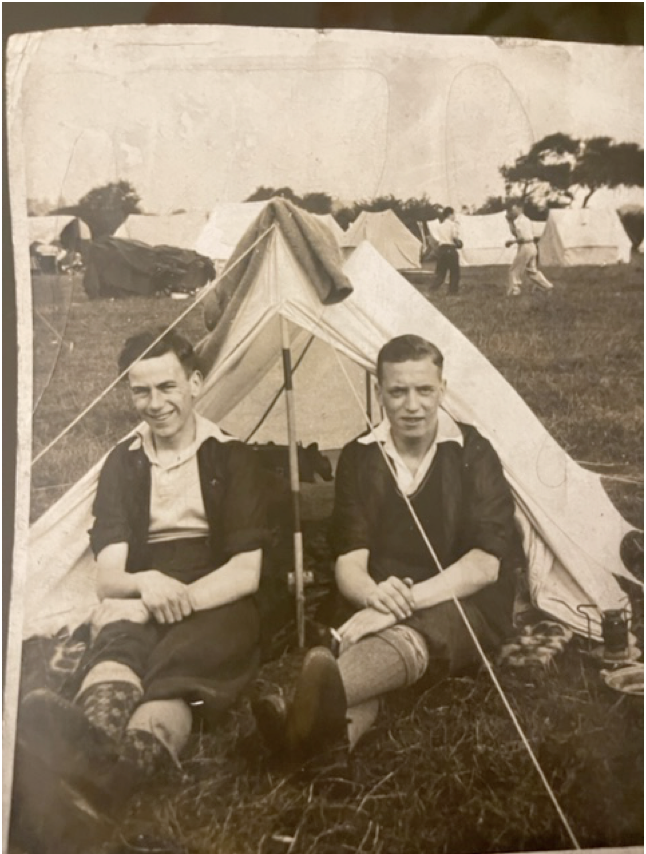
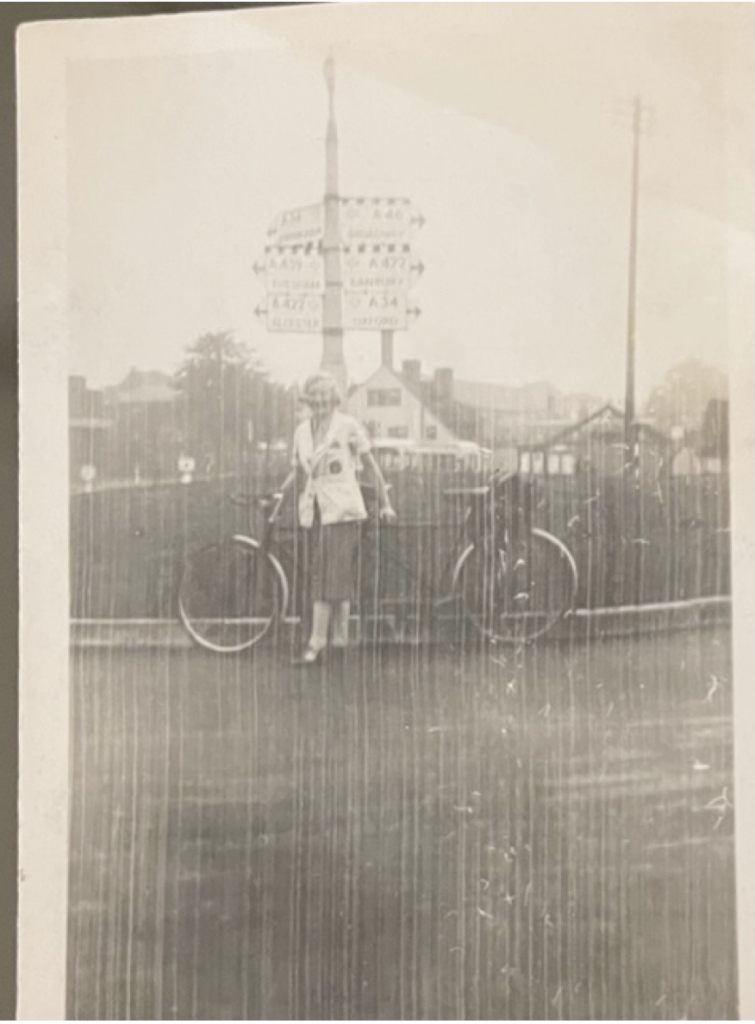
THE WAR YEARS
The first meeting after the outbreak of war was on the 4 October 1939. The only reference in the minutes to this threat to society as we knew it is ‘That when normal times are again reached the club revert to the old run book instead of diaries’. The attendees would not have been aware of full impact of the shattering events that were to follow. At that time our membership was 35 and this, not surprisingly, fell to 26 in 1941 and 1942. In those darkest days of the war we continued our activities but much of members’ spare time would be taken up with service to the nation – air raid wardens, fire watching activities and other auxiliary services.
Monthly meetings were discontinued and we made do with an AGM. We did, though, manage to find time to arrange comforts for those in the armed services. Apparently Wilf Partington who many of us knew served along with G Yates, T Baines and W Holland. Members also resolved to comfort themselves by organising a Christmas ‘house social’ in 1941. In 1943 our membership increased to 33 – this may have been the result of the CTC suspending its activities for the duration of the war. We know that Charlie Westlake joined us at this time and stayed with us forty years before returning to the CTC. A point appreciated only by those who cycled throughout the war was that they had to use some of their clothing coupons for capes and shoes.
THE POST-WAR YEARS
Ordinary meetings resumed in April 1945 just before the end of the war. No reference was made to the war in these minutes but a return to normality is seen in the resumption of an annual programme of club runs. Our culture of working with other local cycling clubs is seen in a positive response to a request from the West Pennine Road Club for help with marshalling their mountain time trial on the Holcombe circuit. In 1948 our membership had risen to 61, this would not reflect the full extent of the post war boom in cycling activity as the CTC had resumed its activities.
This year we ran our first public dance at the Derby Hall and made a profit of twenty five pounds seven shillings and sixpence. Dances became a special feature of our activities right through until the 1960s. Not only were they good for the social side of our club they were also a very good fundraiser. All kinds of other social activities were organised – Blackpool weekends, potato pie suppers and the annual attendance at the Easter Meet of the National Clarion.

